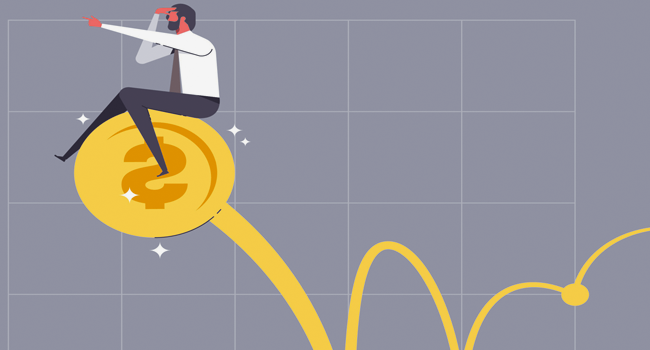Forex Trading Mistakes to Avoid in 2023
Lack of Education and Preparation:
Understanding the fundamentals, technical analysis, and risk management strategies is essential. Take the time to educate yourself through online courses, books, and reputable sources to build a solid foundation.
Overtrading:
Overtrading is a common pitfall among traders, particularly beginners. The temptation to make quick profits can lead to excessive trading, often resulting in poor decision-making and emotional trading. Stick to a well-defined trading plan and exercise patience, waiting for high-quality setups rather than entering trades impulsively.
Ignoring Risk Management:
Successful traders understand the importance of proper risk management. It involves determining the acceptable level of risk per trade and setting position sizes accordingly. Neglecting risk management can lead to excessive exposure and significant losses, even if your analysis is correct.
Emotional Trading:
Allowing emotions to dictate trading decisions is a standard error. Successful traders maintain a disciplined approach and rely on logical analysis rather than feelings. Develop and stick to a trading plan, regardless of short-term market fluctuations.
Chasing Losses:
Chasing losses is a dangerous practice where traders try to recover previous losses by taking more significant risks. It often leads to a vicious cycle of more losses and emotional decision-making. Accepting losses as part of the trading process and sticking to the trading plan is vital to long-term success.
Lack of Patience:
Forex trading requires patience and discipline. Traders often fall into the trap of seeking instant gratification, leading to premature entries or exits. Waiting for confirmation and following a well-defined strategy will help avoid impulsive trading decisions and improve overall trading performance.
Neglecting Fundamental Analysis:
While technical analysis plays a crucial role in forex trading, neglecting fundamental analysis is a significant oversight. Economic indicators, news events, and geopolitical developments can profoundly impact currency prices. Staying informed about essential factors can provide a more comprehensive market view.
Overreliance on Indicators:
Indicators can be valuable tools, but relying solely on them can be detrimental. Many traders must use only a few indicators or constantly switch between them, resulting in conflicting signals and confusion. Focus on a few reliable indicators and use them with other analysis techniques.
Lack of Adaptability:
The forex market is constantly evolving, influenced by various factors such as economic conditions and geopolitical events. Stay flexible, continuously learn, and adjust your trading approach accordingly.
Trading Without a Plan:
Trading without a well-defined plan is akin to sailing without a compass. Without a clear trading strategy, traders are more likely to make impulsive decisions, leading to inconsistent results. Develop a comprehensive trading plan that includes entry and exit rules, risk management guidelines, and a clear set of objectives.
Neglecting Market Analysis:
Staying informed about market conditions and conducting thorough analysis is crucial. Neglecting to analyze market trends, economic data, and geopolitical events can leave traders unprepared and vulnerable to unexpected price movements.
Overlooking the Importance of Backtesting:
Backtesting is a vital step that traders often overlook. It involves testing a trading strategy on historical market data to assess its performance. By backtesting, traders can gain insights into the viability and effectiveness of their system, identify potential flaws, and make necessary adjustments before risking natural capital.
Failing to Diversify:
Concentrating all your trades on a single currency pair or relying heavily on a particular strategy can expose you to unnecessary risks. Diversifying your trading portfolio across multiple currency pairs and employing different trading strategies can help spread risk and increase the potential for consistent profits.
Neglecting to Keep a Trading Journal:
Maintaining a trading journal is an invaluable tool for self-assessment and improvement. It allows you to record your trades, analyze your decision-making process, identify patterns, and learn from successes and failures. Regularly review your trading journal to refine your strategies and avoid repeating mistakes.
Following Others Blindly:
While it is essential to learn from experienced traders, unthinkingly following someone else’s trades or tips without understanding their rationale can be detrimental. Develop your trading skills, knowledge, and judgment. Use other traders’ insights as a reference point but always make independent decisions based on your analysis.
Neglecting Risk-to-Reward Ratio:
The risk-to-reward ratio is a fundamental concept in trading. It refers to the potential profit compared to the possible loss on a trade. Failing to assess and maintain a favorable risk-to-reward ratio can lead to a skewed risk profile. Aim for businesses with a higher potential reward relative to the risk taken to achieve long-term profitability.
Overconfidence:
Overconfidence can be a trader’s downfall. A string of successful trades can lead to complacency and an inflated sense of skill, while a series of losses can erode confidence. Stay humble, maintain a realistic perspective, and continually evaluate and adapt your strategies to changing market conditions.
Neglecting Trading Psychology:
Trading psychology plays a significant role in a trader’s success. Emotional discipline, patience, and managing stress are crucial attributes. Develop mental resilience, control emotions such as fear and greed, and recognize the psychological biases that can influence your decision-making process.
Failing to Take Breaks:
Forex trading can be demanding, both mentally and physically. Take regular intervals, engage in physical activity, and maintain a healthy work-life balance to stay refreshed and focused. By avoiding these common forex trading mistakes in 2023, traders can increase their chances of success. Remember that trading is a journey of continuous learning and improvement. By actively avoiding these mistakes and continuously honing your skills, you can position yourself for long-term profitability and growth in the forex market.
Additionally, it’s essential to keep up with advancements in technology that are shaping the forex trading landscape. Integrating artificial intelligence, machine learning, and algorithmic trading has revolutionized how trades are executed and analyzed. Embrace these technological advancements and explore how they can enhance your trading strategies and decision-making process.
Lastly, always appreciate the power of continuous learning and self-improvement. Attend seminars, webinars, and workshops conducted by industry experts. Join online trading communities where you can exchange ideas, learn from experienced traders, and stay updated on the latest market trends.
Neglecting to Set Realistic Expectations:
Having realistic expectations about the potential returns and risks involved in forex trading is essential. Forex trading requires consistent profitability and time, effort, and skill development.
Failing to Adapt to Changing Market Conditions:
The forex market constantly changes. Market conditions can shift due to economic events, geopolitical developments, or changes in central bank policies. Failing to adapt your trading strategies and approaches to these changing conditions can result in missed opportunities or losses.
Trading Without a Clear Exit Strategy:
While traders often focus on finding the right entry points, having a well-defined exit strategy is equally important. Determine your profit targets, stick to them, and establish rules for when to cut losses. Having a clear exit strategy helps to manage risk and avoid emotional decision-making.
24. Neglecting to Monitor the Economic Calendar: Economic indicators and news releases can significantly impact currency prices. Stay informed about critical economic events and regularly consult an economic calendar to avoid unexpected market volatility. Incorporate this information into your trading plan and adjust your strategies accordingly.
Neglecting to Analyze Your Trading Performance:
Regularly reviewing and analyzing your trading performance is essential for growth and improvement. Identify patterns, strengths, and weaknesses in your trading approach. You can make data-driven decisions and refine your strategies by analyzing your trades.
Ignoring the Importance of Liquidity:
Liquidity is crucial in forex trading. Avoid trading during illiquid periods or low-volume sessions, as it can lead to wider spreads and increased slippage. Focus on trading during peak market hours when liquidity is higher to ensure favorable trading conditions.
Falling for Forex Scams:
Be cautious of trading systems or signal providers promising guaranteed profits or high returns with little effort. Do thorough research, verify the credentials of any service or platform, and exercise caution when dealing with unknown entities.
Overlooking Currency Correlations:
Currencies are not isolated entities; they often have correlations with other currency pairs or assets. Understanding these correlations can help you anticipate and manage potential risks. Failing to consider currency correlations can lead to unintended exposure and increased risk in your trading positions.
Neglecting to Practice Proper Money Management:
Money management is crucial for long-term success in forex trading. Avoid risking a significant portion of your trading capital on a single trade. Implement position sizing techniques, such as the percentage risk per trade or fixed-dollar risk, to ensure that losses are controlled, and capital is preserved.
Neglecting Continual Learning and Skill Development:
Forex trading is lifelong learning. Stay curious and committed to expanding your knowledge and skills. Read books, attend seminars, and seek out educational resources to stay updated on market trends, trading strategies, and new developments in the industry. By avoiding these other forex trading mistakes, you can enhance your trading performance and increase your chances of success in the competitive market 2023. Remember, trading is a journey, and ongoing self-improvement and adaptation are keys to long-term profitability. Stay disciplined, stay informed, and remain dedicated to your trading goals.
Conclusion:
Forex trading mistakes can be costly, both financially and emotionally. Education, risk management, emotional discipline, and adaptability significantly affect a trader’s journey. Remember, successful trading is not just about making profits but also about minimizing losses and preserving capital. In 2023, the forex market is expected to remain highly volatile and influenced by global economic factors, technological advancements, and geopolitical events. To navigate these challenges successfully, traders must avoid the following additional mistakes:


